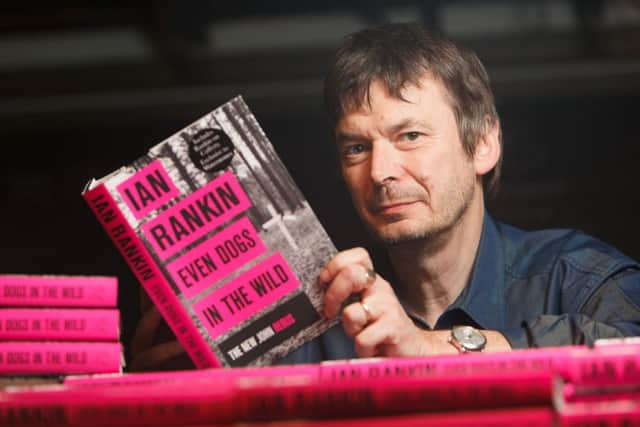Scots penchant for dark humour spreading across the globe
This article contains affiliate links. We may earn a small commission on items purchased through this article, but that does not affect our editorial judgement.


David Manderson, from the University of the West of Scotland, has co-authored the book The Glass Half Full with Scottish director Eleanor Yule on Scotland’s apparent miserablist tendencies.
Following the book’s success, Mr Manderson has now started a new study on how the world is becoming more downbeat.
Advertisement
Hide AdAdvertisement
Hide AdMr Manderson, a creative writing lecturer, said: “We see this side of the Scottish psyche almost every day, from comedies such as Still Game, Limmy and Rab C Nesbitt and films like Filth and Trainspotting, to our prolific Tartan Noir output from the likes of Ian Rankin, Stuart MacBride and Christopher Brookmyre.


“We seem to embrace our sense of victimhood and turn that into something compelling - and it seems this is finding a larger audience almost every day.
“And it’s not just here. Nordic Noir is more popular than ever. Hollywood’s films and heroes are getting darker and it’s increasingly hard for anyone who wants to have a ‘cheery’ drama or series commissioned for television.
“It could be argued we live in a more miserablist world than ever before.”
A Glass Half Full, which deals with how stories for television and film are commissioned in Scotland, sparked international interest after its publication in 2013 and both authors received requests to speak at conferences across the world.


Mr Manderson said: “We have been invited all over the world to talk about this; recently Finland and Germany – I’ve even been invited to Abu Dhabi.
“Every time we have gone to an event, you expect a room with a smattering of people, but it’s always full. There’s a fascination in the notion of miserablism.”
Advertisement
Hide AdAdvertisement
Hide AdHe said he would “love to know” why dourness has become so popular, adding: “It may be due to religion – perhaps predominantly protestant countries lean towards miserablism more than others? Perhaps wetter weather has something to do with it, which could also explain the success of Nordic Noir.
“It could simply be that we live in a world that’s more, for want of a better explanation, miserable.


“Whatever the reason, it poses interesting questions about our psyche - do we actively seek to embrace negative notions? Is it good for us? Is the world ‘becoming’ more miserable?
“Shining a closer light on this issue may just answer these questions.”
DOWNLOAD THE SCOTSMAN APP ON ITUNES OR GOOGLE PLAY